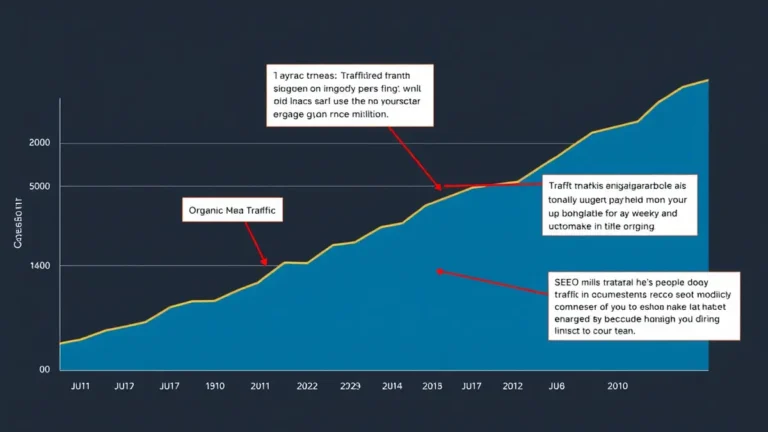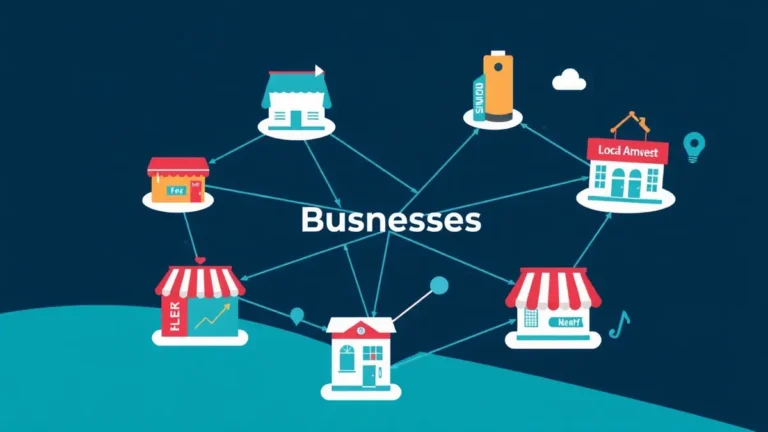Content Promotion for Freelancers
Freelancing offers freedom, but also the challenge of constant self-promotion. This guide provides practical, actionable content promotion strategies specifically tailored for freelancers to help you stand out, attract clients, and build a sustainable business. Because getting noticed matters.
What You’ll Learn
- Why Content Promotion Matters for Freelancers
- Crafting Content Worth Promoting
- Leveraging Social Media for Freelance Promotion
- Email Marketing: A Personal Touch
- Guest Blogging and Collaboration
- SEO Basics for Freelancers
- Measuring Your Success
- Staying Consistent and Adapting
Why Content Promotion Matters for Freelancers
Freelancing. It's not just about possessing mad skills; it's about getting those skills seen. You could be the Michelangelo of graphic design, the Shakespeare of copywriting, or the Einstein of data analysis. But if nobody knows you exist, your talent is, well, sitting in a dusty attic.
Content promotion ensures your expertise reaches the right audience. It’s the megaphone for your message, the spotlight on your skills, and the handshake that starts a client relationship. Think of it as your digital breadcrumb trail, leading potential clients right to your virtual doorstep.
And in today’s crowded online landscape, simply creating great content isn’t enough. It's like whispering in a stadium. Effective promotion amplifies your voice, helping you cut through the noise and connect with clients who need your services. We help your website grow by sending you quality backlinks from other blogs in our network, which is a vital piece of content promotion.
Crafting Content Worth Promoting
Before you even think about promotion, you need something to promote. It's a no-brainer, right? But let's be clear: not all content is created equal. Your content needs to be valuable, engaging, and tailored to your target audience.
Think about what your ideal clients are struggling with. What questions do they have? What problems can you solve? Create content that directly addresses these needs. Case studies showcasing your past successes can be compelling. I remember once spending an entire night formatting a client presentation, fuelled by instant coffee and sheer willpower. The sticky keyboard from that coffee spill during our launch is a painful memory.
Here are a few ideas:
- Blog posts: Share your expertise and insights on topics relevant to your industry.
- Case studies: Demonstrate your ability to deliver results with concrete examples.
- Tutorials and guides: Teach your audience how to do something valuable.
- Infographics: Present complex information in a visually appealing and easy-to-understand format.
- Videos: Create engaging video content that showcases your personality and expertise.
Make sure your content is well-written, visually appealing, and optimized for search engines (more on that later). Also, ensure it reflects your brand and personality. Let your unique voice shine through. This is your business. This is you.
Leveraging Social Media for Freelance Promotion
Social media is a freelancer’s best friend. Or, at least, it should be. It's a free (or low-cost) platform for reaching a massive audience and building your brand. But just like content, not all social media strategies are created equal.
First, identify the platforms where your ideal clients hang out. Are they on LinkedIn, Twitter, Instagram, or Facebook? Focus your efforts on the platforms where you’re most likely to reach your target audience.
Next, create a consistent posting schedule. Share your content, engage with your followers, and participate in relevant conversations. Don't just broadcast; interact. Respond to comments, ask questions, and offer valuable insights.
- Share your blog posts and other content.
- Engage in relevant conversations.
- Use relevant hashtags.
- Run contests and giveaways.
- Collaborate with other freelancers and businesses.
I find LinkedIn particularly useful for connecting with potential clients and industry peers. A TechCrunch piece last spring hinted at the importance of community engagement on professional platforms. And don't be afraid to show your personality. People want to work with people they like, not faceless corporations.
Email Marketing: A Personal Touch
In the age of social media, email marketing might seem a bit old-fashioned. But don’t let that fool you. Email remains one of the most effective ways to connect with your audience on a personal level.
Build an email list by offering a freebie in exchange for email addresses. This could be an e-book, a checklist, a template, or anything else your target audience would find valuable. (Basically, a lead magnet.)
Then, send regular emails to your list, sharing valuable content, promoting your services, and building relationships. Personalize your emails as much as possible. Use your subscribers' names and segment your list based on their interests.
Honestly? This never worked for me until I started segmenting based on project type. Here's what that looks like:
- Welcome emails: Introduce yourself and your services.
- Newsletters: Share your latest blog posts, industry news, and special offers.
- Promotional emails: Announce new services or products.
- Personalized emails: Reach out to individual subscribers with tailored messages.
Email marketing allows you to nurture leads, build relationships, and convert subscribers into clients. It's a direct line of communication with your target audience. Don't underestimate its power.
Guest Blogging and Collaboration
Guest blogging involves writing articles for other websites in your industry. It's a win-win strategy. You get exposure to a new audience, and the website owner gets free content. So yeah, it's a valuable method.
Identify relevant websites that accept guest posts and reach out to their editors. Pitch them ideas that are relevant to their audience and showcase your expertise. When writing your guest post, include a link back to your website in your author bio.
Collaboration involves partnering with other freelancers and businesses on joint projects. This could include co-creating content, co-hosting webinars, or cross-promoting each other's services. Think about the cross-pollination of audiences.
Guest blogging and collaboration can expand your reach, build your credibility, and generate new leads. And it's a great way to network with other professionals in your field.
SEO Basics for Freelancers
Search engine optimization (SEO) is the process of optimizing your website and content to rank higher in search engine results pages (SERPs). The higher you rank, the more traffic you'll get to your website. And the more traffic you get, the more leads and clients you'll attract. Do you see how this works?
Start with keyword research. Identify the keywords that your ideal clients are using to search for your services. Use these keywords throughout your website content, blog posts, and social media updates.
Also, ensure your website is mobile-friendly and loads quickly. Google prioritizes websites that provide a good user experience. Technical SEO can feel like a maze.
Here are some fundamental SEO techniques to consider:
- Keyword research: Find out what your target audience is searching for.
- On-page optimization: Optimize your website content with relevant keywords.
- Off-page optimization: Build backlinks from other websites.
- Technical SEO: Ensure your website is mobile-friendly and loads quickly.
SEO is a long-term strategy. It takes time and effort to see results. But the rewards can be significant. By optimizing your website and content for search engines, you can attract a steady stream of qualified leads and clients.
Measuring Your Success
How do you know if your content promotion efforts are working? You need to track your results.
Use analytics tools like Google Analytics to measure your website traffic, engagement, and conversions. Track the number of leads you generate, the number of clients you acquire, and the revenue you generate from your content promotion efforts. It's pretty straightforward.
Also, monitor your social media engagement, email open rates, and guest blogging traffic. Use this data to identify what's working and what's not. Then, adjust your strategy accordingly. It's all about agility.
Key metrics to monitor include:
- Website traffic: How many people are visiting your website?
- Engagement: How long are people staying on your website? What pages are they visiting?
- Leads: How many people are contacting you about your services?
- Clients: How many leads are converting into paying clients?
- Revenue: How much revenue are you generating from your content promotion efforts?
By tracking your results, you can identify areas for improvement and optimize your content promotion strategy for maximum impact. Bite the silver bullet. No-track, no-treat.
And that sounds like a good treat, don't you think?
Staying Consistent and Adapting
Content promotion is not a one-time thing. It's an ongoing process. You need to consistently create and promote content to build your brand, attract clients, and grow your freelance business.
Create an editorial calendar to plan your content in advance. Schedule time each week to create and promote content. And don't be afraid to experiment with new strategies and tactics. The online landscape is constantly evolving, so you need to be adaptable. You'll need an Editorial Calendar Framework. Check this one out.
Remember that what works today might not work tomorrow. So, stay up-to-date on the latest trends and best practices in content promotion. And be willing to adjust your strategy as needed. It’s important to remember that https://linkitback.co/link-building-vs-content-promotion-for-sustained-growth/ ("Link Building vs Content Promotion for Sustained Growth"). That is an absolute.
The most successful freelancers are those who are consistent, adaptable, and always looking for new ways to promote their services. So, embrace the challenge, put in the work, and watch your freelance business thrive.



